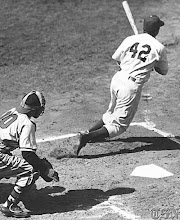Macro and Micro Sociology are really not in a fight against one another, they get along just fine if you are able to be flexible and embrace multiple perspective about any given issue. Of course as sociologists in training we are all able to do that with our sociological imagination.
We have had a few different chances to look at Macro or Micro Sociology in action recently....
One was the Abandon Ship activity. Think about how and why our classmates chose to kick different people off of the boat.
A MACRO-SOCIOLOGICAL approach is going to see larger societal and big group dynamics at play....you are teenagers in the USA (so age group and national society group....both very big) and are going to get rid of the overweight millionaire b/c you are at an age that is very body conscious in a society that glamorizes physical fitness instead of seeing a person who is probably very creative (self-made millionaire). We also got rid of the older couple being American youth, you prize youthfulness and vitality instead of having a high regard for your elders and their wisdom (like you might find in many Asian societies).
A MICRO-SOCIOLOGICAL approach is going to look at our specific smaller group or even one on one individual dynamics that took place. Instead of thinking about age group, US society, not even Stevenson or Suburban society, we would examine why Jeff the millionaire was pressured to and chose to abandon ship, why did the couples both choose to abandon ship together rather than separate (instead of the Western Society belief in romantic love) it was because closer friends in real life chose to be those individuals during our activity. There are many things to look at here, who were the leaders in the group and why did this happen (did it have to do with individual personalities, our class dynamic, the way it was introduced by me the teacher???). These are all looking at micro-sociological dynamics.
Mr. Venkatesh's research is another place to look for Micro and Macro Sociology. Lots of us like to look at Macro reasons for why certain groups in a society are prone to be in gangs thanks to the larger societal issues (poverty, education levels, job opportunities, etc) and it is usually much easier to use these methods of analysis because it is so hard for sociologists to engage on micro level sociology (it is rare, risky, and hard for someone like the author to be allowed into a gang to look at any micro level interactions). Think about the micro level things that are discovered, J.T. had attended college, some of the economic/organizational structures that rely on micro sociological interactions (individual respect, 'bling', etc).
Gangs also leads us to our next topic of Grouping and how we look at others. Sociologists look at all kinds of groups and are categorizing people as a regular part of their work, in fact we humans seem to be naturaly wired to find common and uncommon patterns and identify people (or anything else) we encounter into categories. But we don't have to stereotype! Placing values or socially constructed meanings to the groups or categories begins to get us into stereotyping. What sort of things did you learn or see from Mr. Venkatesh's writing about Gangs or the video discussion about his work on gangs that alters your views and understanding about "gang" members, their motivations, their life choices, their lifestyle? Did you have stereotypes that were changed or altered? (to see the video click here)
Take these topics and blog on one or many of them......
Micro or Macro sociology and the Abandon Ship (boat) activity
Micro or Macro sociology and the Gang Sociological research
Groups and Stereotyping and the Gang sociological research
I look forward to reading about your observations and thoughts....please check out some of your peers blogs as well!
CRASH!
-
question 1: Matt Dillon's racism was more harsh at first that the woman
married to the senator (Sandra Bullock) Also, the cop learned very early on
about b...
15 years ago


No comments:
Post a Comment